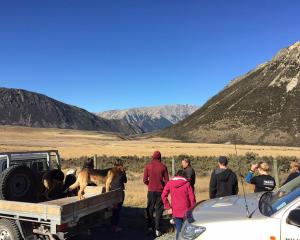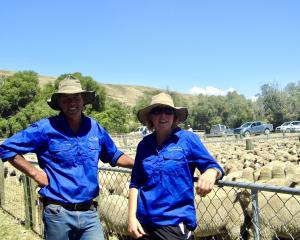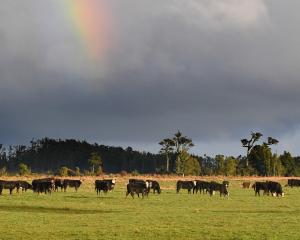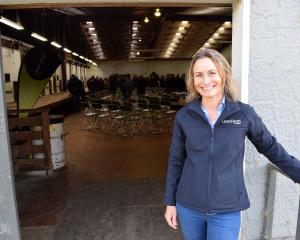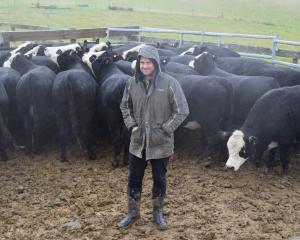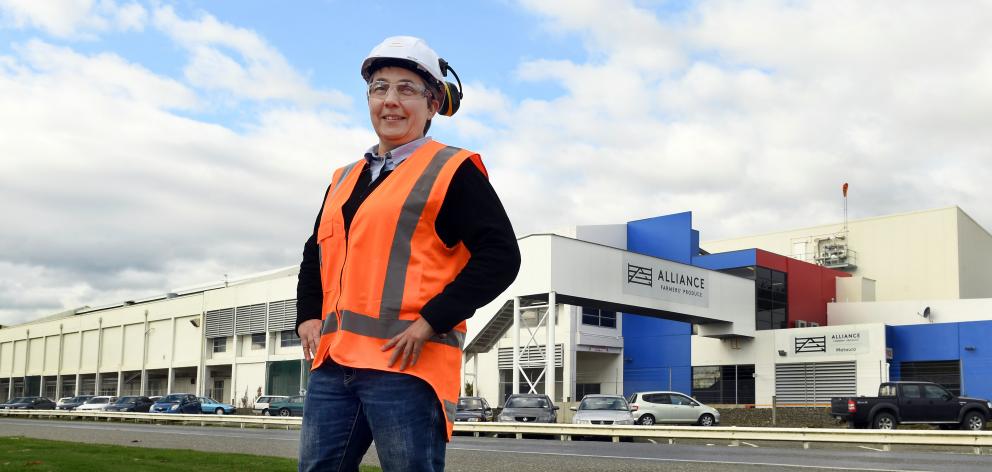
When cattle beast number 150,216 went through the Mataura plant last week, a photograph was taken to record the occasion.
The vibe in the factory - having beaten the previous record by more than 8000 - was "wonderful", plant manager Melonie Nagel said.
It was an opportunity for staff to gather and also recognition that without a team effort - involving both Mataura employees and the farmers supplying the stock - it never would have happened, Ms Nagel said.
Alliance credited the increased volume of livestock to a focus on achieving greater efficiencies at the plant. It had also been processing cattle affected by the phased eradication of bacterial disease Mycoplasma bovis.
Beef has been the sole focus of the plant after Alliance moved its sheep processing facility from the site to its sister plant at Lorneville, near Invercargill, in 2012.
It spent $15million upgrading beef processing facilities and increasing capacity at Mataura - the biggest investment at the plant since it was built.
It was her experience with beef that resulted in Ms Nagel (51) receiving a call from Alliance, looking to recruit a plant manager.
Born and raised in South Africa, she had lengthy experience in the meat industry, a path which arose after starting her studies in food technology.
She had never thought of leaving her home country, but the Alliance role looked like a "wonderful opportunity".
Being ambitious, she relished the opportunity to be part of a team in a company that was growing, and being part of - and contributing to - that growth, she said.
She tried to get a visitor visa to check out her potential new workplace and home but that did not work out and she arrived in New Zealand in January this year ready to start work.
The meat industry was very similar, whether in New Zealand or South Africa, and she found the culture very much the same.
As far as technology, some things in South Africa were a little more advanced than New Zealand - there was more automation in further processing - but some of the safety aspects in New Zealand were "far better".
She was overwhelmed by the warm welcome that she received which also reinforced the importance of the plant in the Eastern Southland community.
Alliance was one of the biggest employers in the area and the Mataura plant had a "massive" economic impact on the surrounding area.
The plant had been on the same site, in the centre of the town, since 1893, and generations of families had worked there.
Since moving to Gore, Ms Nagel often bumped into people who used to work at the plant, who then started talking about it - "like it's a family member" - and it was great to see such a commitment to a workplace.
The plant, which employed about 500 people at the peak of the season, was running well, Ms Nagel said.
It had the highest performance score that the Ministry for Primary Industries used to assess New Zealand processing plants.
Plant management was traditionally a male-dominated role; Alliance recently appointed Karen Morris as Smithfield plant manager at Timaru while Silver Fern Farms' Waitane plant, near Gore, has Bronwyn Cairns at its helm.
Being in a male-dominated environment was not something that bothered Ms Nagel; she had a background in martial arts, representing South Africa and competing internationally in jiu jitsu, which also tended to be dominated by males.
That was a great time of her life; as well as competing, she also instructed and had her own club until 2006 when she sold it to a student. "I'd been there, done that, got the T-shirt. It was time for something different," she said.
She enjoyed giving back to the sport and seeing people grow and develop was "just a wonderful thing".
That interest in developing and encouraging people had played a large part of her life, including her career.
Getting buy-in from people, encouraging them and sharing the vision of "where we're going" was all part of it, along with working together as a cohesive team.
That included a focus on plants working together, supporting each other, rather than being "in a silo".
Ms Nagel enjoyed having scope over the whole factory, and with a background that included operational and also technical and compliance experience, having had a "foot in both camps" was very valuable.
Every day was "unique" and that suited Ms Nagel who admitted she was not a person who liked routine. Even though it was the off-season now, the foot was "not off the pedal".
Her current work visa was for five years but she and her partner were in the process of applying for residency, having lodged an expression of interest, after deciding to make New Zealand "home".
Change - which was occurring at Alliance - did not happen overnight and she wanted to be part of that process.
She was enjoying her work and it was easy to be excited about such a dynamic industry. There was also constant change. "It's definitely not an easy market but it's certainly an interesting one," she said.
Demand for protein was "never going to go away", no matter how many people were vegetarians. Protein was an inherent part of people being able to be healthy.
But it was now all about how to present products to consumers and keeping up with what they were wanting, given the way that people spent time at home had changed, she said.
Asked what she missed about South Africa, Ms Nagel laughed as she said, "the sunshine". The only thing she really did miss was family.
A keen outdoors person and hiker, she was loving the Southland countryside, as were the couple's two rottweilers and one boxer dog they brought with them.
Neither was she missing the often bumper-to-bumper traffic getting to and from work: "It takes me nine minutes - and that's at peak time".
Alliance's general manager, livestock and shareholder services, Heather Stacy is returning to Australia at the beginning of October.
Ms Stacy, who started in the position in November 2016, said it was a hard decision to make, describing it as a "life decision", in terms of choosing her Alliance family and her "life family".
It had been "wonderful to be part of the journey" and that was what she was going to miss most, she said.
It felt like the co-operative was much stronger and that was good for shareholders but also New Zealand industry. She was very proud of its achievements, not just in livestock but across the wider business.
As far as the red meat outlook, returns to farmers were good and demand seemed to be "insatiable".
A watch needed to be kept on the likes of Brexit, the US-China trade war and implications of the outbreak of African swine fever in China. Farms being converted to forestry would definitely have an impact, she said.


